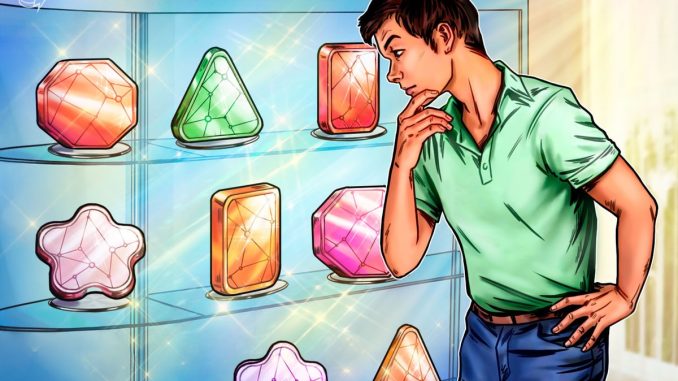
A trio of studies published in November may shine some light on the social and psychological factors that motivate movement in the nonfungible token (NFT) market.
Across three independent studies, researchers from Western University in Canada, Tilburg University in the Netherlands, the University of North Carolina at Chapel Hill in the United States, and Rennes School of Business in France found that personal experiences and luck, along with asset scarcity and consumer optimism, were catalysts for the majority of market movement in the NFT space.
NFT market movement
In a study conducted by Guneet Kaur Nagpal of Western University and Luc Renneboog of Tilburg University titled “On Non-fungible Tokens, Blockchain Hypes, and the Creation of Scarcity,” the researchers analyzed the market dynamics of CryptoPunks, a popular collection of NFT assets.
“CryptoPunks,” write the researchers, “are among the most valued Non-Fungible Tokens (NFTs), with remarkable sales such as CP #5822 fetching USD 23.7 million in February 2022, and CP #7523 obtaining USD 11.8 million in December 2021.”
The primary findings, according to the paper, include the assessment that buyers who were already invested in Ether (ETH), the native coin of Ethereum — the blockchain on which CryptoPunks assets reside — were more likely to engage in the market at higher costs and also saw higher gains. The researchers also noted that ETH gains and losses didn’t necessarily affect the price of NFTs but did influence the decision to sell or resell assets.
Furthermore, the study states:
“The authors establish that the creation of rarity, for both CP types and accessory combinations, which can be captured by statistical and visual measures, determines pricing.”
In a separate study titled “Personal Experience Effects across Markets: Evidence from NFT and Cryptocurrency Investing,” researcher Chuyi Sun of the University of North Carolina at Chapel Hill examined transaction-level data from “about one million” wallets to study how “personal experiences” contributed to bubbles in the NFT market.
”I find that NFT investors who randomly receive more valuable NFTs in the primary market are more likely to participate in subsequent primary market sales,” wrote Sun, adding that investors who randomly receive more valuable NFTs are more likely to eventually purchase “more lottery-like” cryptocurrencies.
Counterintuitive findings
A third study, titled “The Impact of Experience, Overconfidence and Optimism on Future Cryptocurrency Ownership” and conducted by Akanksha Jalan and Roman Matkovskyy of Rennes School of Business, takes a deep dive into the dynamics surrounding investor optimism and their knock-on effect for the cryptocurrency and NFT markets.
Related: The ‘WAGMI’ mentality is undermining crypto
In this study, the researchers found, counter-intuitively, that negative past experiences and investor optimism both positively affect the odds of future cryptocurrency and NFT ownership.
“The fact that individual crypto investors with negative experiences with cryptocurrencies continue to show interest in the asset class could reflect some form of self-serving bias,” wrote the authors, before adding, “with these investors likely attributing their losses to factors beyond their control (like market volatility) rather than poor decision-making on their part.”




Be the first to comment